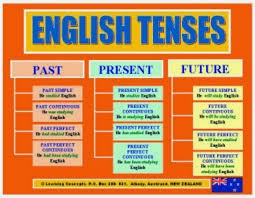Most modern grammar writers argue that there are only two tenses in English, past and present. We talk about the future using various modal verbs, including WILL, (and SHALL in British English) because we are usually talking about our perception of the future. The example you give…seems pretty nonsensical to me.
In the terminology of linguistics, English is a language with only two tenses: past and present.
Linguistics is a useful science. Because it is a science, it needs numerous precise terms that enable its students to make fine distinctions about the function of words in different languages.
The focus of linguistics is not English, but all the languages of the world. Students of this demanding science need to distinguish between tense and aspect; between adjectives that describe people and adjectives that describe inanimate objects.
Words like determiner, intensifier, modal, and word class are suited to making finer distinctions than adjective, adverb, helping verb, and part of speech. But I find that the older terms serve me adequately in explaining basic usage to students for whom a little grammar goes a long way.
How many tenses in English? The answer all depends upon whom you ask and what meaning you attach to the grammatical term tense.
The Oxford English Dictionary defines grammatical tense as “any one of the different forms or modifications (or word groups) in the conjugation of a verb which indicate the different times (past, present, or future) at which the action or state denoted by it is viewed as happening or existing.”
Most ESL sites set the number of English tenses at twelve. One site I found adds a thirteenth tense to accommodate the way we express the future with going and an infinitive: I’m going to paint the garage in the morning.
In the realm of linguistics, English has only two tenses: present and past because according to linguistics terminology, a tense is indicated by a distinctive verb form. “I sing” is in the present tense because the idea of present time is expressed in the single form sing.
“I sang” is past tense because the idea of past time is expressed in the single form sang.
What I and a great many other English teachers still call “future tense” is not a tense according to linguistics terminology because it requires a helping verb (modal). “I will sing” is not a separate tense, but an aspect of the present tense.
For what I do, such distinctions seem unnecessarily confusing. I do not write for grammarians or students of linguistics; I don’t have the training or knowledge to do so. My focus is basic English usage. From my point of view, English has three main tenses: present, past, and future. Each of these main tenses has sub-tenses.
Here are the twelve English tenses as conventionally taught:
Simple Present: He sings.
Present Perfect: He has sung.
Present Continuous: He is singing.
Present Perfect Continuous: He has been singing.
Simple Past: He sang.
Past Perfect: He had sung.
Past Continuous: He was singing.
Past Perfect Continuous: He had been singing.
Simple Future: He will sing.
Future Continuous: He will be singing.
Future Perfect: He will have sung.
Future Perfect Continuous: He will have been singing.
Note: The continuous tenses are also known as progressive tenses.
Source: Daily Writing Tips

English is the hardest language to be fluent in, in the world. However, it is not the hardest language to learn on the basic level.
ReplyDeleteIELTS score
khassn
ReplyDelete